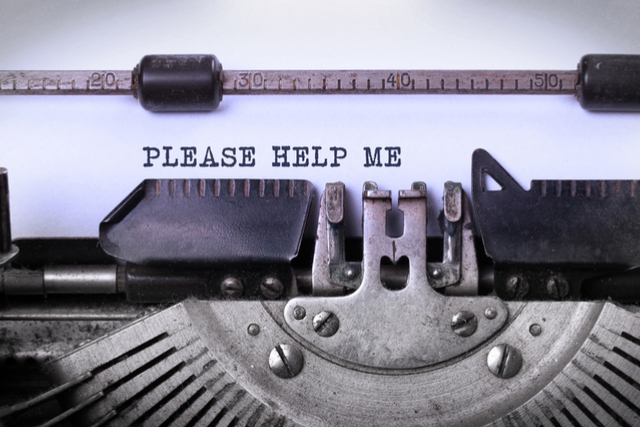
What's the best "extra" you get from being a experienced copywriter? How about using your persuasive writing skills to help you convince people to give you what you want?
Let me share an example. A copywriter I know, we'll call her Amy, bought expensive new luggage before her trip to Europe this past summer. When she finally got back on American soil two weeks later, she was devastated when her luggage came rolling off the carousel—crushed and torn.
Imagine the hassle Amy would go through to file a claim with the airline to get reimbursed for her damaged luggage. Even though the luggage brand's warranty clearly stated damage caused by airlines wasn't covered, Amy put her persuasive skills to use. She wrote a short email asking the company to replace her luggage.
All it took was 10 minutes of her time writing a quick, persuasive letter.
Solve your problems with persuasive copywriting
Let's look at the 5 best techniques you can use to persuade others to do something for you or agree with your point of view.
1. Make them imagine
Make them imagine being in your shoes. Imagining being confronted with the same situation or problem is a powerful force to getting people to understand your point.
Here's an example:
- Imagine the confusion and disappointment you would feel when you saw your brand new luggage crushed—not even surviving the return from its maiden trip abroad.
2. Use the word "because"
Give people a reason why they should believe or agree with you. The most famous example of the power of "because" is from Robert Cialdini's book Influence.
Cialdini wrote "Imagine trying to jump the queue at the copier…"
Which of the following questions do you think prompted more agreement:
"Excuse me. I only have 2 pages. May I use the Xerox machine?"
"Excuse me. I only have 2 pages. May I use the Xerox machine because I'm in a rush?"
"Excuse me. I only have 2 pages. May I use the Xerox machine because I have to make these copies?"
Here's what Cialdini found:
First example: 60% let you go ahead
Next example: 94% let you go ahead when you add "because I'm in a rush"
Final example: 93% let you go ahead by adding "because" even when your reason is nonsensical.
3. Use sensory words
Using sensory words to evoke touch, taste, sight, smell, and sound lights up the sensory areas in your brain, making your copy more memorable and compelling.
Let's go back to our luggage example from earlier:
- Why I like X brand luggage is because it's amazing to hold. And behold. The supple leather exterior is as soft as a lamb's ear, and the vibrant colors make the luggage stand out from the crowd.
4. Pop in a mini-story
As a writer, you know that stories can sweep readers up and transport them to a different world entirely. Make that work for you in a persuasive letter.
Consider this mini-story for our luggage:
- X luggage followed me across the ocean for a whirlwind tour of Europe. As I took in the sights in Venice and Florence, my luggage kept my personal items and valuables safe for me. And when I crossed the Mediterranean, X luggage never failed. It stood firm and strong, remarkably stable against buffeting waves and inclement weather.
5. Be repetitive
Don't worry about overstating your opinion or your needs. Just be careful to say it differently each time. Repetition, as everyone who ever went to school knows, makes people remember.
So here's a final luggage example using repetition:
Your customers choose Luggage X for its durability and sound construction.
Luggage X is the only choice that made sense because of its solid engineering.
Users expect Luggage X to last for years thanks to its toughness and sturdy materials.
Conclusion
Don't forget to close your persuasive letter with a call to action. Tell them exactly what you want them to do. If you've used these persuasive techniques throughout your copy, you should have the reader walking in your shoes and agreeing with you along the way. And now would be a good time to use the "because" clause:
- Please replace Luggage X because I know your company stands behind its products.
Or you could go the nonsensical route:
- Please replace Luggage X because your luggage is the bomb.
You'll still get 93% agreement.
Oh, and by the way, that company fully replaced Amy's luggage, free of charge. Result! There are some perks to being a copywriter after all.
Have you ever used your direct response copywriting skills to write a persuasive letter addressing a need or problem you had? Let us know in the comments below how it worked for you.

